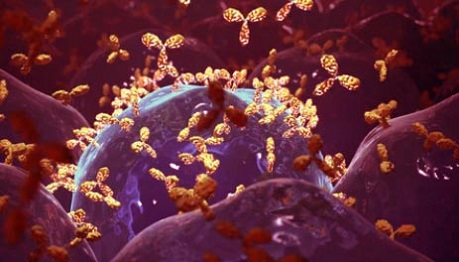IgE antibodies found to play a role following both natural infection and various types of COVID-19 vaccinations
Nikhil Prasad Fact checked by:Thailand Medical News Team Sep 01, 2024 7 months, 1 day, 6 minutes ago
Medical News: A New Perspective on SARS-CoV-2 Immunity
A recent study conducted by a group of researchers from the Adolfo Lutz Institute in São Paulo, Brazil, has uncovered unexpected findings related to the human immune response to SARS-CoV-2, the virus responsible for COVID-19. The research primarily focused on the role of Immunoglobulin E (IgE) antibodies, which are typically associated with allergic reactions and parasitic infections. However, this study covered in this
Medical News report, has revealed that IgE antibodies also play a role following both natural infection and various types of COVID-19 vaccinations, providing new insights into how our bodies respond to this virus.
 IgE antibodies found to play a role following both natural infection and various types
IgE antibodies found to play a role following both natural infection and various types
of COVID-19 vaccinations
The Study's Focus and Methodology
The researchers set out to explore the presence of IgE antibodies targeting the receptor-binding domain (RBD) of SARS-CoV-2. This was investigated in a cohort of 59 volunteers from Brazil, who had either been naturally infected with the virus or vaccinated with different types of COVID-19 vaccines. The study specifically looked at individuals vaccinated with the vectored ChAdOx1 (AstraZeneca) or inactivated CoronaVac (Sinopharm) vaccines, followed by a booster dose with the mRNA vaccine BNT162b2 (Pfizer). Samples were collected before vaccination, after two doses, and following the booster shot, to assess the immune response over time.
Key Findings: IgE Antibodies Beyond Allergies
The study uncovered several critical findings:
-IgE Response to COVID-19: IgE antibodies, generally associated with allergic responses, were found in individuals who had recovered from COVID-19. Interestingly, these antibodies were present even in those who had mild symptoms or were asymptomatic.
-Vaccine-Induced IgE: Vaccination not only triggered the production of IgE antibodies but also increased their levels significantly. Participants who received the ChAdOx1 vaccine showed a stronger IgE response compared to those vaccinated with CoronaVac. However, after receiving the BNT162b2 booster, IgE levels became comparable across all vaccine groups.
-Avidity of IgE Antibodies: Avidity refers to the strength with which an antibody binds to its antigen. The study found that IgE antibodies produced in response to SARS-CoV-2 showed intermediate to high avidity, particularly after the booster dose. This suggests that these antibodies may play a functional role in the immune response to the virus.
-Correlation with IgG4 Antibodies: The study also detected the presence of IgG4 antibodies, which are typically involved in non-inflammatory responses. These antibodies were most prominent after the booster dose, and while there was a moderate correlation between IgE and IgG4 levels, the researchers emphasized that further studies are needed t
o fully understand the implications of this relationship.
Implications and Future Directions
The presence of IgE antibodies in response to SARS-CoV-2, as highlighted in this article, raises several important questions. Traditionally, IgE is not considered a major player in the defense against viral infections, but these findings suggest that it may have a more significant role than previously thought. The exact function of these antibodies in COVID-19 remains unclear, but their high avidity hints at potential involvement in neutralizing the virus or contributing to other immune mechanisms.
Additionally, the study’s findings regarding the induction of IgG4 antibodies following vaccination are noteworthy. IgG4 is known for its anti-inflammatory properties and could potentially interfere with more inflammatory immune responses typically needed to fight off infections. However, whether these IgG4 antibodies are beneficial or detrimental in the context of SARS-CoV-2 immunity remains an open question.
Conclusion: A Call for Further Research
In conclusion, this study provides new insights into the complex immune response to SARS-CoV-2, revealing the unexpected involvement of IgE antibodies. The findings suggest that both natural infection and vaccination can induce these antibodies, which exhibit high binding strength to the virus. However, the functional significance of IgE in the context of COVID-19 immunity is still not fully understood.
Future research is crucial to unravel the potential protective or pathogenic roles of these antibodies. Such investigations could pave the way for better-targeted vaccines and treatments, especially as we continue to navigate the long-term impacts of the pandemic.
The study findings were published in the peer reviewed journal:
https://www.nature.com/articles/s41598-024-71047-5
For the latest COVID-19 News, keep on logging to Thailand
Medical News.
Read Also:
https://www.thailandmedical.news/news/new-insights-into-allergy-treatments-ige-antibodies
https://www.thailandmedical.news/news/post-covid-19-individuals-with-iga-nephropathy-found-to-have-overactivated-complement-system
